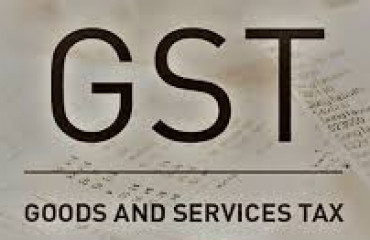
The central government has given the mandate to check Goods and Services Tax (GST) related profiteering by businesses to anti-trust watchdog Competition Commission of India (CCI) from 1 November, as the term of the National Anti-profiteering Authority (NAA) comes to an end.
The central government has given the mandate to check Goods and Services Tax (GST) related profiteering by businesses to anti-trust watchdog Competition Commission of India (CCI) from 1 November, as the term of the National Anti-profiteering Authority (NAA) comes to an end.
An official order from the Central Board of Indirect Taxes and Customs (CBIC) said that the decision was taken on the recommendation of federal indirect tax body the GST Council. Mint had reported on 11 November that if a GST Council meeting does not take place before month end, a panel of officers authorised to take emergency decisions would decide on giving CCI the mandate for ensuring that benefits of GST rate cuts and availability of input tax credits get passed on to consumers.
CBIC said that the government has empowered CCI to examine "whether input tax credits availed by any registered person or the reduction in the tax rate have actually resulted in a commensurate reduction in the price of the goods or services or both supplied by him."
The development ends uncertainty about the future of the anti-profiteering regime, which was introduced to prevent businesses from pocketing the tax benefits meant for consumers. Industry watchers have for long claimed that in the absence of industry specific guidelines about calculating the extent of price reduction warranted by tax rate cuts, it will be difficult for them to ensure full compliance. Policy makers have also recognized that the anti-profiteering provision in the GST law is not a perfect one given that its implementation in a free-market economy, where businesses have pricing freedom, will be a tough call.
NAA will cease to exist from 1 December, although Directorate General of Anti-profiteering (DGAP), the investigation wing of the profiteering watchdog, will retain its investigative powers under GST laws, explained Rajat Mohan, partner at AMRG Associates, an accounting firm.
"All reports by DGAP henceforth will be submitted to CCI for its verdict. Transfer of all pending cases from NAA to CCI and forming a special bench for adjudication may take some time, fuelling the pendency of cases. Judiciary may also consider remanding all the writ petitions filed in profiteering cases to CCI," explained Mohan.
CCI is now awaiting a new chairperson after its former chairperson Ashok Kumar Gupta completed his term in October. A new chairperson will mean CCI gets the quorum to adjudicate on matters. At present, the regulator has only two members. The government may also need to address the funding and infrastructure requirements needed for CCI to perform the new mandate.
The anti-trust watchdog has established itself as a strong regulator over the last decade and uses both adjudication and advocacy to correct anomalies in market. Currently the government is in the process of reforming the Competition Act, which was passed in 2002 in order to empower the regulator to effectively deal with digital economy firms and to improve ease of doing business.
